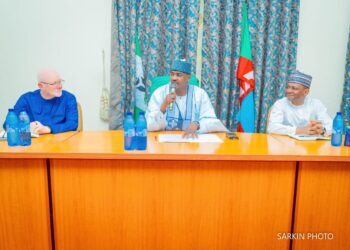In the realm of global environmental discourse, President Bola Tinubu’s delegation to the COP28 climate change summit has sparked both applause and controversy.
Senator Jimoh Ibrahim, representing Ondo South Senatorial district, ardently supports the decision but raises a crucial point – the delegation size is insufficient to address Nigeria’s environmental challenges.
Senator Ibrahim contends that funding over 400 individuals for such a consequential conference is meagre.
His rationale revolves around the potential future hosting of the summit by Nigeria, where a more extensive delegation would be imperative.
The senator highlights the necessity of knowledge-sharing and collective efforts in combating the impacts of environmental pollution currently plaguing Nigeria.
Emphasizing the significance of having a substantial number of delegates, Senator Ibrahim underscores how their presence contributes to knowledge sharing.
As Nigeria grapples with the adverse effects of environmental degradation, he asserts that a well-represented delegation is crucial for garnering insights, expertise, and global perspectives at the summit.
Contrary to the criticism faced by President Tinubu’s government for the sizable delegation, Senator Ibrahim reveals that significant achievements were secured during the summit.
President Tinubu reportedly sealed numerous bilateral agreements, translating to millions of dollars for Nigeria.
This underscores the importance of a robust delegation in fostering diplomatic relations and securing beneficial partnerships on the global stage.
Despite the asserted benefits, the President Tinubu-led government faces criticism for taking one of the largest delegations to the COP28 summit.
Conflicting reports about the exact number of delegates raise questions, with the government clarifying that it sponsored 422 individuals out of the 1,411 registered.
The controversy surrounding the delegation size continues to fuel debates on the efficiency and necessity of such a comprehensive representation.










